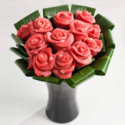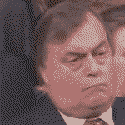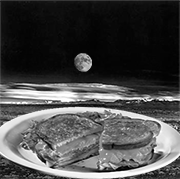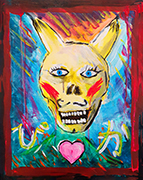|
Hello all. Talked to Mega about a bi-weekly debate thread and he said I could go for it. Here we can talk different ideas and arguments in a peaceful manner. This is a topic that's been stuck on my brain lately and it's mostly tied to my photographic direction. The first and most important argument against black and white for me has been the fact I'm a black photographer. For whatever reason black photographers tend to gravitate to monochrome. Any time I meet or see a black photographer I can successfully predict that they shoot b/w. It gets boring. Not so much the photographic quality, but often the lack of visual variety, among black photographers. So for me personally I feel like a need to distance myself from monochrome. I don't want it to be seen as black photogs only shoot with it. I'm worried how that makes black photographers perceived. Last year during the George Floyd protests so many photogs were shooting the current day in monochrome. A criticism I have towards that is it makes things too on the nose even if it's thematically cogent and maybe even topical. I saw black and white protest shot after black and white protest shot. I kind of got tired seeing it. There's also a case of the timelessness of monochrome. There's a positive to that in that modern photos of protests show a correlation to the protests held during the 60's. That helps bridge a narrative that much little has changed (i.e. "it looks like it was taken during the civil rights movement") but the problem is that this is now not the 60's. The now is far more interesting than the past and I feel black and white far too often puts importance on nostalgia. The regular populace appears to prefer color, though. I took a protest shot and was shooting in color but the best shot had the subjects mostly backlit and they were wearing distracting yellow vests. So I ended up opting to convert it to monochrome. I was pissed that I had to. I tracked down the subject and the family so I could show them the picture. I showed her the black and white copy and and she instantly said,"do you have it in color?" The every day viewer seems to naturally consider color superior to black and white. Would being a b/w tog limit my prospects? On the other hand, I actually really, really enjoy shooting b/w. I love how it can catch things that color makes otherwise boring without a more direct light source. I feel more in tune with my camera when I shoot monochrome and every time I do I always end up thinking,"I love this. It's so fun." I love how I can go right to what's important and simplify with black and white. Color is less fun to use for me than b/w because of the multitude of distractions and for the kind of photography that I like to shoot at least, black and white is just perfect for it. Yet I still like color. For the longest time I abandoned black and white and pursued only color. But recently I stepped up and decided to give monochrome another go to work on my fundamentals and simplify what I'm shooting. I'm really conflicted. I have so many arguments against b/w but I still love shooting it. If i were someone that would just be a hobbyist this wouldn't be a big deal, but as someone that wants to do this professionally I have to think about the "brand" and visual consistency. What are your thoughts on this issue, Dorkroom? I feel like if I weren't black I'd just shoot black and white. Jupiter Jazz fucked around with this message at 08:09 on Feb 17, 2021 |
|
|
|

|
| # ? May 3, 2024 22:24 |
|
Another argument against black and white that I can think of: black and white has an ability to make you feel like it's happening in another world, that it's far away. But this isn't another world. It's here. It's today. It's now. There's a joke that as kids when watching older movies or seeing older pictures, we thought the world was just black and white then. Black and white abstracts situations and puts up a glass around the picture being taken. Depending on what you photograph, shooting in black and white could take away from the cause you're capturing because b/w has the natural ability to date. Color, however, humanizes.
|
|
|
|
Came here to post "Black and white are colors, checkmate!" but then I read the post. So for actual content, I have an interest in the documentary photography tradition and how it has represented Appalachia. I'm a big fan of Stacy Kranitz, who shoots in color, and her work has been considered controversial by some people who would be gatekeepers of imagery of Appalachia such as Roger May. The jist of the disagreement, though of course neither side I'm sure would take kindly to the simplification, is whether the history of the harmful tradition of the images taken of the region should be struggled with by (A) zits and all representation of the realities of the region, not shying away from the sensational or (B) rehabilitating the image of the region by strongly promoting the work of people who promote positive representations, and condemning as salacious those that make images of the darker still present elements. I've found it interesting that the later form of work is very often in black and white. It feels like the black and white images help promote an idealization of a past that can lightly be suggested survives in the region. But a very strong argument needs to be held about how this is in line with white supremacist myths of the antebellum south. And while it certainly is the case that the south is the scapegoat for American racism, while racism is to be found in every state, it seems wrong to me to represent the region in the present in a way that whitewashes the still present racism, and the black and white imagery seems to visually represent that whitewashing to me. So anyway I think it's interesting that you have found black photographers work so much in b&w while my experience has been that it's favored by racists (who would say "I'm not a racist, BUT"). Etc. Etc. Context of the tradition changes the meaning of the signifier or something something.
|
|
|
|
Sub Rosa posted:
Fascinating observation. Could you extrapolate on this? I'd love to read more about this argument. I looked at Ms. Kranitz's work and I thought it was a lovely series on the area. I've also read this but nothing I can see indicates from May that his intent is racism. https://www.yesmagazine.org/social-justice/2018/03/15/these-photos-will-change-the-way-you-think-about-race-in-coal-country/ Jupiter Jazz fucked around with this message at 23:53 on Feb 18, 2021 |
|
|
|
Sub Rosa posted:I've found it interesting that the later form of work is very often in black and white. It feels like the black and white images help promote an idealization of a past that can lightly be suggested survives in the region. But a very strong argument needs to be held about how this is in line with white supremacist myths of the antebellum south. And while it certainly is the case that the south is the scapegoat for American racism, while racism is to be found in every state, it seems wrong to me to represent the region in the present in a way that whitewashes the still present racism, and the black and white imagery seems to visually represent that whitewashing to me. I think that may be fair to say about that certain genre of photography. America has been going through a great look back at the golden age, whether this be idealism or racism. We were great, let's be great again, and I can see how shooting black and white as a callback to that would be enticing. On the other hand, it is not limited to that. Check out one of my favorite projects, black and white, but going further back to wet plate photography and how it represented the Maori tā moko. Exploring erasure through a historical lens is very interesting to me.  https://petapixel.com/2018/07/09/wet-plate-photography-makes-tattoos-disappear/
|
|
|
|
I think I can see where you're coming from as I look at her series more in-depth. There's a contrast between the color photos which seem to point to Appalachia's present or future (including, latino families and shops with Spanish names) with its past, edified by the use of black and white images. Even one of the few black and white photos taken that isn't of an art piece that acts as an attempt idolize the past, is literally a spider (cob) web, signifying the old. Wow. I can see why black and white Appalachian photogs would take offense! Reading up on this feud. There's this Instagram post Stacy posted. https://www.instagram.com/p/5N7NvqoNEL/ Roger May has made a series of posts railing against her saying they're stereotypes. https://www.rogermayphotography.com/walkyourcamera/tag/Stacy+Kranitz For what it's worth I agree with his stance on Gilden. Not a fan. I can't say May is a racist though. The work I've seen on Looking At Appalachia is very humanistic and diverse. Seems the main issue is situated in differences in style and subject matter. The work of Looking At Appalachia is idealistic. The work of Kranitz is more raunchy and raw. This has less to do with racism and more to do with a different documentary philosophy. It's like going to a foreign nation and firing off poverty porn and pics of dehumanizing pictures that sexualize the subject versus going there, talking to some people, and firing off pictures how they'd like to see themselves represented. I can't say that the poverty porn approach is what Kranitz was doing but I believe that's the charge May was accusing her of. Personally, I can agree with him regarding Gilden and I can also see where he's coming from in regards to Kranitz. Gilden treats subjects like meat. I think May just can't get over that he doesn't like Kranitz's aesthetic. The way Kranitz shoots has an air of humanity and respect. I'm not sure this has much relation to b/w anymore though. Haha. Jupiter Jazz fucked around with this message at 01:32 on Feb 19, 2021 |
|
|
|
https://www.youtube.com/watch?v=4skcx9fGODQ I posted this in the documentary photography thread but I had to say it's relevant here too. So many shots are in b/w and I'm drawn more to them. What I like to shoot most in photography are the stories between people and I think black and white is great for that. Not that color disables the ability to tell stories of humans, but the color doesn't add much unless you're going for a specific mood or a theme. The black and white pictures strike to the heart of what I want out of photography: human stories with no filter or additions. The story is what matters and black and white allows me to drive to the heart of that. Yet I'm still worried about how this impact my future. I'll get less jobs if I shoot primarily black and white. But I figure I can also master color as well, and just choose to shoot b/w for many things. Some shots from a book I've got coming in.  I love the leeway b/w offers and the contrasts you can convey. In color I know the water wouldn't be able to stand out as much compared to that bright white. I love the way black and white can transform humans. The darkest of blacks or whitest of whites in the image can make people more beautiful.  Look at that portrait and the way the highlights on her face glisten or how her white dress accentuates her bright, white eyes more. Funnily, one more thing that's attracted me to b/w is also something I listed as a negative: its ability to appear otherworldly. Because it's out of this world, it fits the confines of the photograph within a strict medium. When you look at my photo, you'll be forced to consume my work because it's different than what you see everyday, in a different shape and form. When getting into photography at first I was obsessed with what's "real". But the camera itself picks up things that aren't there. Different white balance allows your to express yourself in your own. Then there's focal length. When you consider that, no photo is reality accurate. It's all an interpretation. If that's the case, then I love "seeing" in black and white: interpreting a scene, adapting it into b/w in my head. The photo is already mine because I've already seen it. It makes me feel more involved and makes the photo more "mine". I love this. I'm gonna do it. Sure, things can change. But for now I'm I'll be trying to shoot black and white mostly. Jupiter Jazz fucked around with this message at 04:36 on Feb 19, 2021 |
|
|
|
Jupiter Jazz posted:I can't say May is a racist though. In practice in reviewing what Looking At Appalachia looks like today he may be less guilty of that at present than I maybe expected, but I remember his facebook posts about Stacy were a lot more direct and nasty than what he writes in that series of blog posts.
|
|
|
|
Colour can be distracting. Black and white & choosing black and white signifies things, all of which also can be distracting. Despite being distracting, colour feels commonplace probably because most people perceive the world that way. Black and white therefore feels less so, it distances the viewer from the subject. It is in a way unsettling to see a well done colourisation of a black and white photo after having known the original. Mostly this pertains to traditional photography. In general I think imagery that is black and white (greyscale or even monochrome) emphasises shape, lightness/darkness, and either stability or motion (depending). Colour will “colour” anything it touches, black and white you have to go by light and shadow. I mostly take colour photos because the sense of the commonplace or banal is one of the aspects of photography that interests me (I realise this sounds stupid especially in 2021). I like looking at black and white photography about as much as I do colour. Though I have taken some black and white shots that I am proud of I’ve also taken quite a few where I wish I’d had colour film in the camera instead. Sorry about the way I wrote this post
|
|
|
|
Some thoughts, some of which have been mentioned but which I repeat to present them together. B&W is predominently used:
|
|
|
|
I've decided to make black and white my main medium and I have to really write out my thoughts as to why to see if they're legitimate. Today I went to go get some pizza. It's a beautiful day and it's the late afternoon so I got to study light on the way to, during, and while eating my pizza. I've come to a few conclusions. For one, this is my favorite type of light to shoot in color. I love the contrasts, deep shadows, and harsh light. But today while eating I couldn't but notice that it's the color, not the light itself, that pops. Essentially, my favorite light feels like a crutch. It's the saturation that makes it interesting, not the interplay of light. After a week of photographing nothing but monochrome I started to agree with an old Ted Grant quote I used to not agree with: quote:“When you photograph people in color, you photograph their clothes. But when you photograph people in Black and white, you photograph their souls!” It sounds pretentious, but after a week of living in the world of grays again, and the first time in weeks being exposed to such harsh day light, I started to agree with it. I used to hate that quote because I would think,"I don't actively seek colors out", but in the end, I think I do. When I got home I decided, for a study, to turn some of my most favorite color photos into monochrome to see why I like the originals.  This Alex Webb photo is utterly harsh in its light. But it's not the light he's capturing, specifically. it's the colors and the moment. Granted, this is perfectly framed: the windows in the background, the silhouettes, the decisive moment of the old man covering his face from the blinding sun. But the color is the main thing that draws the eye. Yet the color doesn't really add much to the overall image for me. I like the colors but the colors don't do anything for the photograph. It's just aesthetic. Converted into black and white (crudely I may add) makes the picture more neutral. The colors feel like something that adds to the whole picture while also adding absolutely nothing.  Then there's this Bruce Davidson picture.  This photo is meticulously done to draw the eye to the subjects using color. The stairs and the ladies yellow jacket force you to draw the eye and ignore the lights at the top of the frame. Yet I still like the monochrome version.  I guess I'm writing all of this because I feel limited by color. I feel like it's best brought out when you're photographing in specific light, which limits when and what I want to shoot. But in black and white I want to photograph everything. Yesterday I took a portrait of a young lady. I increased the compensation (on my phone I might add) to make the background more white to increase her figure to ground and bring some highlights out on her face. I didn't feel limited and enjoyed playing with various forms of light rather than look for color to pop in my eye. It's not the best portrait but I enjoyed making it.  I have no idea what this will mean for career prospects and frankly, I don't care. I really enjoy the process of thinking in black and white and seeing it transfer to an image that looks precisely how I envisioned it. Will photograph in color now and then but I think black and white will be my main squeeze going forward. Jupiter Jazz fucked around with this message at 23:17 on Feb 21, 2021 |
|
|
|
I think color is absolutely central to that Alex Webb photograph, and to almost all of his photographs that I've seen.
|
|
|
|
Jupiter Jazz posted:I guess I'm writing all of this because I feel limited by color. I feel like it's best brought out when you're photographing in specific light, which limits when and what I want to shoot. But in black and white I want to photograph everything. Take this with a boulder sized grain of salt since I'm far from what I would consider a professional and am purely self/youtube taught, particularly as it comes to what would be traditional art theory and design. Color can be the driving force behind a photo that otherwise is not particularly interesting. The colors in the Webb shot are the subject as much as the people are, but the light is very much part of the image as well. Each subject in the foreground is impacted by the light in some way. The woman on the left is squinting and turned such that her eyes are in shadow, the man is shading his eyes, the woman in red is looking down out of the harsh sun and the woman on the right has positioned herself, or the sun it such, that her eyes are just out of the light. Meanwhile, everyone else in the photo literally fades into the background. Whether this was the intent of Webb or not I don't know, but it's what I pick out of the scene as an obserber. If you look at it in b/w without the interaction with the light in mind I think it becomes less of an impactful photo and more of a snapshot. Combined with the colors in the scene it works even better in my mind. Color can provide context or evoke a feeling that may be otherwise absent in a b/w photo or require different processing to adequately capture. Here's 3 photos that I think illustrate that, at least to me. The first photo is very close to what reality was, an early autumn afternoon as the sun began going down.  Second is simply converted to b/w without any changes to the previous edit. To me this seems very gloomy and foreboding.  Third is with the exposure brightened up and highlights lifted a bit. It feels a lot less tense and evokes more of the feeling that I wanted captured at the sacrifice of a lot of the texture in the clouds, particularly in the reflection.  Contrary to the above, while I like the colors in this first photo, there's nothing truly lost in the b/w conversion since the subject of the photo has less to do with the colors involved than it does the prairie dog itself.   I suppose the two points that I am trying to make are that 1) A strong subject works whether it's color or b/w and 2) Sometimes the pre-shot film selection or exposure settings can impact the desired outcome the same way as post processing can be used to push and pull light and color (if applicable) from one emotional response to another. edit - your contest submission for Feb is a great example of this. The blue of the car pops in contrast to the snow vs the b/w and makes it a much more interesting image. The red pop from the reflector plus the lines from the edge of the snow, trim, shadow on the ground on a diagonal along with the strip of color makes it work really well. charliebravo77 fucked around with this message at 05:01 on Feb 22, 2021 |
|
|
|
Don't get me wrong. I very much enjoy color and in no way am I saying it has no place or anything. I know what it can bring to an image. But i also know what it can take away. For what I want to photograph, I simply don't think color adds much. I did the car shot specifically because of the contrast with the blue and white so you're right about that one and it was a misstep converting it to monochrome. In any case, I understand the value of color but increasingly, for what I want to photograph, I don't see the point in it. Let's take this photo from the other week.  The yellow brings attention to an instant leading line but the color overall adds nothing to the image.  Monochrome helps me achieve the same thing and cuts the fat. I actually prefer it because it allows even deeper shadows and blacks. And then there's the fact color limits the kind of light it even looks good in. It's very, very circumstantial. And often, when I shoot in color I don't even want to shoot unless I like the light, but the stuff I want to capture isn't even light dependent: it's about the story, first and foremost. Another example. Granted, this isn't a great picture but I'll still use it. The subway train light can very often be flat and boring with color.  But in black and white certain details pop.  Do you know how boring this picture looks in color? Again, it's not a great picture but it's a cute small moment where the body language is most important: how she's all spread out and has her legs resting on him as she lays her head on his shoulder.  In color, it's flat. It's boring. But here, the jacket highlights pop, the gradation of their pants from deep black to light gray. Remember, this is subway light so it's not terribly great or dynamic to begin with. This is a stylistic preference now and I just don't see how color adds anything to my images, the pictures I want to take, with the focal length I like to use. It just doesn't add much. Will I still photograph in color? Absolutely. But for the kind of stuff that's my bread and butter, that really, really makes me excited to photograph I just don't think color adds much. edit: This was taken with a cell phone. I framed and composed this with black in white in mind to create depth. I mention it's a cell phone pic because I like shooting with my phone if able. I really enjoy how b/w isn't too bad. Even with cell phone pics monochrome really works for me but the color detracts from my composition.   It just doesn't add much to what I want to shoot and the colors are so eye popping that I really am starting to agree with the "shooting color captures peoples clothes";etc. because that's what I'm looking at first, not the story. I'm curious how much I'll change my mind when I get ahold of flash. My flash is currently in Texas. I wonder what I'll think about color when I use flash more and can directly control my light rather than be at the mercy of the sun or a trains fluorescents. Again, I don't express this with any hint of objectivity. I can understand why others like color and want to use it but I think I've settled the matter of my personal aesthetic. Jupiter Jazz fucked around with this message at 06:48 on Feb 22, 2021 |
|
|
|
What about the "b&w transforms crap to art" problem? Like I got a number of images that are completely forgettable snapshot quality junk. But I click that B&W button in LR and suddenly I kind of like it. Am I fooling myself? When I'm out shooting is some corner of my brain registering that there's something good there, it just requires throwing away the color? Or have I been conditioned into thinking that black and white images are more "legit" and converting color is a cheap route to victory? It makes me extremely reluctant to upload anything in B&W because it triggers feeling like a fraud.
|
|
|
|
xzzy posted:What about the "b&w transforms crap to art" problem? i think b&w can "turn" a crappy color scene into something better, but it's because the colors don't provide enough contrast or interest to make it an interesting color photo. monochrome doesn't suddenly give something gravitas.
|
|
|
|
Ya and I think a good example of this is the photo of the person on the bus that JJ posted above. when the photo is turned to black and white you don't notice the blue glare in the window or the yellow poles in the background both of which I find distracting in the colour photo. The surrounding bus provides context for the subject but doesn't fight with it nearly as much for your attention. I don't think it's about crap to art per se but its hard to take a colour photograph where the colour isn't an important part of the image and if the colour is boring or distracting then it is likely to be better of in b&w
|
|
|
|
In general I think a good colour photograph will make good use of colour and it will be important in the image. A good black and white image will make good use of the qualities of black and white which colour may distract from
|
|
|
|
In my astrophotography days (well, nights) I would have argued that the Bayer matrix of a typical color sensor is an absolute disaster, so mono all the way. But these days, I only use b/w (film) when I don't want to deal with the hassle of getting the colors right.
|
|
|
|
xzzy posted:What about the "b&w transforms crap to art" problem? Was putting off writing this response as I'm a bit ashamed to have come to this revelation but I definitely used black and white as a crutch when I was starting out to make a poor photo more 'interesting' or the extreme Daido Moriyama style of slamming the blacks and whites into oblivion which covers a multitude of sins. I do still like that style but I do find, more often than not, that the photos I want to take are better served by colour and not B&W. Now let's not discuss my burgeoning reliance on the Portra 160 look ...
|
|
|
|
As a photographer, I'm lucky because I don't have to deal with the burden of narrative, intent or gesture in my pictures, which means I make the choice between colour and BW for purely aesthetic reasons. In fact, for most of what I do (polarized light micrography), the decision is mostly made for me, since for a lot of my stuff I can pick between "lots of colours" when I use a waveplate or "few to no colours at all" if I don't, and the sorts of subjects that work well one way don't tend to work the other. As a viewer, I think the choice between colour and BW should be informed by what context you expect the viewer to bring to the image, and also by what setting you expect the viewer to be experiencing the photo in. As Ric pointed out earlier, BW can be a useful visual cue to tell a type of viewer "this is a serious photo" or "this is fine art" (or f'art, as they say in the business).
|
|
|
|

|
| # ? May 3, 2024 22:24 |
|
I decided to fully embrace color.
|
|
|




















